National Endowment for the Arts Big Read
The NEA Big Read is a grant of up to $20,000 to help bring communities together around the shared activity of reading and discussing the same book.
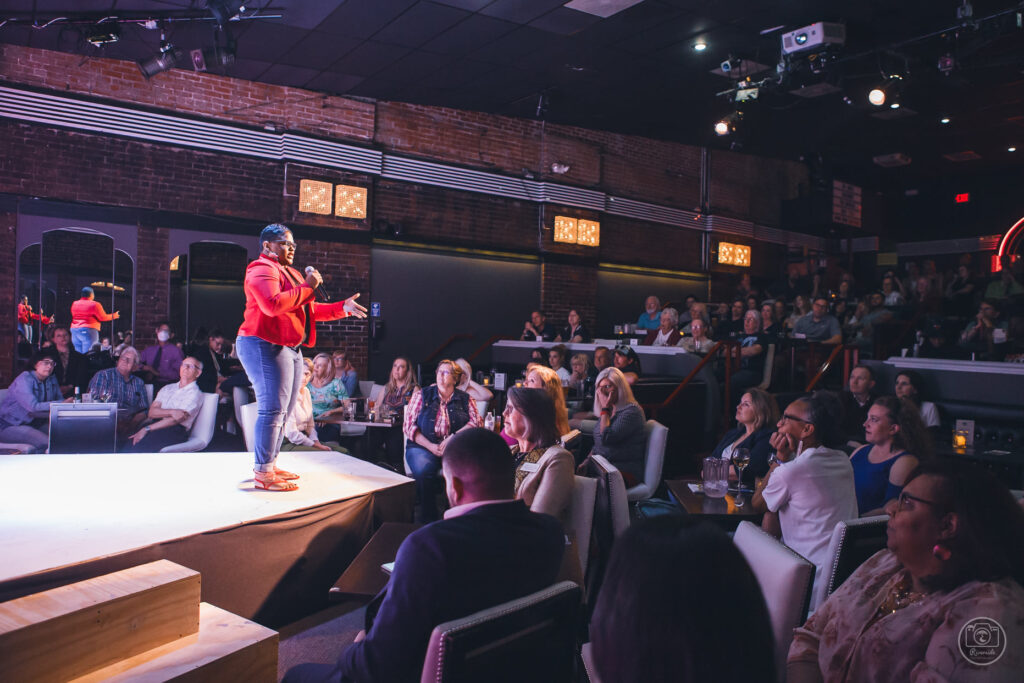
About NEA Big Read
Arts Midwest programs are currently under review for compliance with state and federal laws.
The National Endowment for the Arts Big Read is a program that awards grants ranging from $5,000 to $20,000 to organizations. These grants support community reading programs designed around a single NEA Big Read book.
The NEA Big Read broadens our understanding of ourselves and our neighbors through the power of a shared reading experience. The goal of this program is to inspire meaningful conversations, celebrate local creativity, elevate a wide variety of voices and perspectives, and build stronger connections in each community.
In addition to funding for purchasing the books themselves, each grant recipient is provided with resources to help them succeed. That includes outreach materials to gather people from all walks of life and training on how to work with local partners, how to develop public relations strategies, and how to lead meaningful book discussions.
NEA Big Read programs vary and can be as short as a week or as long as several months. Beyond discussions of the book, organizations may choose to include a kick-off event, invite the author for a visit, or have other events inspired by the content and themes of the book, including panel discussions, lectures, film screenings, art exhibitions, theatrical and musical performances, poetry slams, writing workshops and contests, and community storytelling events.
New Theme and New Books
Programming for the 2025-2026 grant cycle will center around the theme OUR NATURE: How Our Physical Environment Can Lead Us to Seek Hope, Courage, and Connection.
22 titles are available in the NEA Big Read Library to inspire community programming this cycle. Each title explores in some way our relationship with the physical environment. Applicants will facilitate book discussions, writing workshops, and creative programming activities that explore this theme and celebrate the unique aspects of their communities.
Applications for the 2025-2026 cycle are now closed.
-
1
Review the Guidelines
Learn more about the types of projects we support and review our grant deadlines below. You can also download a Word copy of the guidelines, which includes all the application questions.
-
2
Submit your Intent to Apply by January 23, 2025
An intent to apply is an initial step in the application process that confirms your organization’s eligibility for the NEA Big Read. This step should only take 10-15 minutes. It is required in order to submit a full application.
Submit your Intent to Apply by Thursday, January 23, 2025 at 11:59 pm Central Time. Visit our grants portal, SmartSimple, to begin this process. Access detailed instructions on how to get set up in SmartSimple.
-
3
Complete and submit the application form by January 30, 2025
Complete and submit the application form by Thursday, January 30, 2025 at 11:59pm Central Time.
How to Apply
The NEA Big Read welcomes applications from a variety of organizations, including first-time applicants; organizations serving communities of all sizes, including rural and urban areas; and organizations with small, medium or large operating budgets.
Eligible applicants
- 501c3 non-profit organizations and other federally tax-exempt entities including, but not limited to: universities/colleges, school districts, public libraries, tribal organizations, museums, and community service organizations.
- Organizations located within the United States, US Territories, and the Native Nations that share this geography.
- Arts and cultural organizations in any arts discipline (literature, performing arts, visual arts, traditional arts, multidisciplinary arts, etc.) or nonprofit organizations that provide arts programming (social service agencies, etc.)
- Organizations that do not have overdue reports or funding moratoria with Arts Midwest.
- Organizations with or without a UEI number from SAM.gov, though applicants will need to have a UEI number on file by late April 2025 in order to receive grant funds. Apply for a free UEI at sam.gov.
- Can comply with Federal eligibility requirements.
Ineligible applicants
- Individual elementary or secondary schools
- For-profit business or organizations
- Individual artists, ensembles, and artist’s agents
- Applicants using fiscal sponsorship
This round of NEA Big Read grants is for activities taking place between September 1, 2025, and June 30, 2026. Grants are federal funds that derive from the National Endowment for the Arts (Assistance Listing No. 45.024: Promotion of the Arts Awards to Organizations and Individuals).
Each NEA Big Read applicant will:
1. Select a book from the NEA Big Read library.
Each applicant must choose one of the 22 NEA Big Read book selections available for the FY 25-26 grant cycle to feature in community programming. In the application, you will be asked to describe why you chose the book, how the book and the theme resonate with your community, and how the book and the theme will be included or reflected in community activities.
The NEA Big Read is an initiative intended for adult audiences. Applicants who wish to extend the reach of its programming to local schools and other youth audiences must choose a title on the Big Read list that is age-appropriate for those audiences, or conduct programming around additional companion titles intended for those audiences that align with the selected NEA Big Read title and fits with the theme (e.g., a young adult novel or picture book).
If you are a returning grantee, we encourage you to choose a title on the NEA Big Read list that you have not programmed in the past through the NEA Big Read.
2. Engage with community partners.
Each grantee must work in collaboration with local partners and artists to develop, conduct, and promote engaging literary and artistic programs that illuminate the book and theme.
Required partners:
- A library, unless the applicant itself is a library. Higher education applicants must partner with a library that is not directly affiliated with their institution.
- At least one community organization or group that expands the applicant’s existing audience to include new participants of various abilities, cultural backgrounds, education levels, and occupations. Examples: YMCAs, schools, parent/teacher associations, local media outlets, parks and recreation departments, places of worship, unions, Kiwanis, Lions Clubs, local historical societies, etc.
Each applicant will be asked to describe its intended partners and the role each partner will play and whether these partnerships are confirmed or pending.
3. Offer events and activities related to the theme and chosen book. We encourage you to be imaginative with your programming.
At a minimum, include:
- One (1) public kick-off event to launch the program (e.g., a book giveaway, mayoral proclamation, etc).
- At least three (3) book discussions.
- At least one (1) presentation inspired by the book (e.g., a Q&A with the author, panel discussion, lecture, film screening).
- At least one (1) artistic project or activity that engages the community and/or responds creatively to the theme and, if applicable, your chosen book (e.g., a visual art exhibition, theatrical performance, concert, poetry slam).
- At least (3) creative writing workshops (topics might include: poetic responses to nature, Q&As with your neighbors, evoking worlds in sci fi that grapple with real-world challenges).
- At least one (1) activity that allows community voices to be shared publicly (e.g., a public reading or anthology of selected pieces from the creative writing workshops; interviews with community members by a local writer featured in a local newspaper or on a local radio station; a website of archived community stories).
Several of these requirements can be met in one event (e.g., a presentation inspired by the book could include a book discussion). Events and activities may take place virtually and/or in-person, and must be conceived with accessibility in mind for participants of all abilities and strive to reach audiences with limited access to the arts.
Applicants will be asked to describe their target audiences, plans for reaching underserved audiences, and plans for promoting their programming throughout their community.
4. Provide a budget for the project that includes matching funds.
Organizations may request a grant ranging from $5,000 and $20,000. Project budgets must show at least a one-to-one cost-share for the requested amount. To demonstrate the match in your budget, you must include expenses that are at least double your grant request and equal to your revenue plus your grant request. For example, if you request a $10,000 NEA Big Read grant, your total project budget must be at least $20,000. You will be required to list the sources and amounts you are using for the match. Federal funds cannot be used as matching funds.
Potential sources for the match:
- Salaries and wages not covered by this grant
- In-kind contributions
- Volunteer hours
- Earned and contributed revenue (e.g., donations, ticket sales, other non-Federal grants)
- Cash
Project budgets must also include only eligible expenses. Eligible expenses are those that directly relate to conducting your community-wide program.
Examples of eligible expenses:
- Speaker and artist fees
- Book purchases
- Supply costs
- Promotional fees
- Project staff salaries
- Venue rentals
- Other expenses directly related and necessary to conducting your program
Examples of unallowable expenses:
- Refreshments, concessions, food, and alcohol
- Fellowships or cash prizes
- Payment for facilities, purchase of capital equipment, or non-project related administrative expenses
- Overlapping project costs between federal awards, whether received directly from a federal agency or indirectly, such as through a state agency or other entity
- Entertainment costs, such as opening parties, receptions, or fundraisers designed to raise funds for your own organization and on behalf of another person, organization, or cause
- Programs restricted to any organization’s membership; programs must be promoted and available to the general public
Awards are federally funded, so all costs must be allowable per 2 CFR 200. For questions about other potential expenses, contact Arts Midwest.
All grant applications are processed through an online platform called SmartSimple. Applicants will need to register if they are new to using the system. Applicants will be able to access the application by visiting the Funding Opportunities tile on the “Grants for Organizations” home page.
The application involves a two-part process: applicants will submit an intent to apply first and then a full application.
Step 1: Intent to apply
Applicants will submit the following required information:
- Applicant organization details (EIN, UEI number from SAM.gov if available, publicity name, annual operating budget, mission statement, organization location information)
- Two-sentence project summary (100 words)
- Paragraph description of the project (250 words)
- Have you received a grant from Arts Midwest before? (yes/no)
- Project start and end dates (must be between 9/1/2025 – 6/30/2026)
- Chosen NEA Big Read book
- Approximately how many books you intend to order for your programming
- Brief statement on how the chosen title connects to your community and the theme (250 words)
- Grant request amount
Step 2: Full application
Applicants will provide a project budget and their anticipated number of partners, book discussions, events, and individuals served. Applicants will also answer the following narrative prompts:
- Describe your organization’s history and achievements. (400 words)
- Provide a rationale for your chosen NEA Big Read book and how you will use it to address the theme. (400 words)
- Provide a description of your programming. (700 words)
- Describe your programming plans in detail, including types of activities and locations, and the involvement of local talent (e.g., writers, artists from other disciplines, teachers, field experts) and art works (e.g., companion books, films, visual art, etc.). Be sure that your plans meet the minimum project requirements.
- Explain how your programs meet your goals and the goals of the NEA Big Read: to inspire meaningful conversations, celebrate local creativity, elevate a variety of voices and perspectives, and build stronger connections in each community. Explain how you plan to assess those goals to determine if they are met.
- Provide a description of project partners. (500 words)
- Describe your partnerships with libraries (as applicable) and community organizations. Indicate if these are new partnerships or describe your history of working with these partners.
- Explain the role each partner will play in your program.
- Provide a description of community outreach. (500 words)
- Describe the community you plan to reach with your programming and explain how you will engage individuals of diverse backgrounds and abilities.
- Describe how you will make your proposed activities accessible to people with disabilities.
- Provide brief biographies of artists, staff, and/or personnel leading or involved in the project. (400 words)
View sample applications for programming ideas and information about the application process.
Applications are reviewed by an independent advisory panel composed of a diverse group of literary arts experts and other individuals with broad knowledge of community programs. Panel composition changes annually.
A panel uses the following four criteria to review applications:
- Artistic excellence and merit of programming. The panel will assess:
- The rationale for choosing the NEA Big Read book.
- The plan for diverse and imaginative literary programs that highlight the book and theme and meet all programming requirements.
- The involvement of additional works of arts (e.g., companion books, films, etc.) and/or individuals (e.g., local authors and artists, teachers, workshop leaders, field experts, etc.) and their relevance to audiences the activities aim to serve.
- Depth of audience engagement. The panel will assess:
- The clarity of the applicant’s plan to engage audiences of various abilities, cultural backgrounds, educational levels, races, ethnicities, occupations, and experiences with arts participation.
- The applicant’s efforts to foster new and/or strengthen existing partnerships as a way to broaden audience participation beyond the primary constituent base.
- The variety of locations where programs will occur.
- Resource management. The panel will assess:
- The applicant’s and partners’ capacity to produce all programming components.
- A reasonable budget that demonstrates a plan for the required 1-to-1 match and shows direct compensation to local artists involved in the project.
- Overall plan for success. The panel will assess:
- The applicant’s clearly stated goals for the project and how its partnerships and programming activities support those goals. At a minimum, the goals should align with the goals of the NEA Big Read: to inspire meaningful conversations, celebrate local creativity, elevate a variety of voices and perspectives, and build stronger connections in each community.
- The applicant’s plan for evaluating if and how the stated goals are met.
Apply: There is a two-step application process.
- Submit a mandatory intent to apply by January 23.
- Submit a complete application by January 30.
Arts Midwest staff will review applications for eligibility and completeness. We will follow up with any questions or corrections before applications proceed to the panel stage.
Review: All complete and eligible applications will be reviewed by a panel between February 2025 and April 2025.
Award: All applicants will receive an email notification of award decisions in April 2025.
Programming: New grantees will participate in an online orientation in June 2025. Funded project activities occur between September 1, 2025, and June 30, 2026. Any changes or updates to planned activities should be communicated to Arts Midwest staff as early as possible.
Reporting: Grantees will be required to submit a preliminary activity listing 30 days before the project starts and a final report 30 days after the project is completed. The final report consists of a final listing of events, quantitative data on participating audiences and artists, a qualitative narrative, and a final budget.
Consider attending the live informational webinar to learn more about the program.
Live webinar: 1-2pm CT Thursday, November 14, 2024. Sign up here.
If you have additional questions, we invite you to join Grants Officer Joshua Feist for office hours. You can sign up for office hours using the links below:
- 2pm-3pm CT Tuesday, November 19, 2024. Sign up here.
- 2pm-3pm CT Tuesday, December 10, 2024. Sign up here.
You can also always email Arts Midwest with your questions at [email protected]
Here is a list of helpful resources for planning and conducting your NEA Big Read.
- NEA Big Read on arts.gov – Find content about the NEA Big Read books and authors.
- Ideas Hub Series for NEA Big Read Grantees – Find articles on best practices for grant applications, ideas for NEA Big Read programming, and other helpful tips and tricks.
Accessibility Resources
Crediting and Visibility
- NEA Big Read Credit Line – This PDF contains the crediting language you must use in all of your print and electronic media.
- Downloadable logos for crediting.
- Images and Video Permission and Usage Form
Other Resources
- Bulk book orders – Need a place to start for buying bundles of books? This doc contains information for a few different options.
Arts Midwest works to ensure that grant guidelines, presentations, and any other written materials are created with accessibility and disability experiences in mind. Staff are happy to work with applicants on alternative formats, including but not limited to using an adapted form in Microsoft Word or taking verbal responses.
Please complete this form so we can help make a grant or program accessible to you. We may not be able to accommodate requests made after January 16, 2025.
Visit our Accessibility Policy for more information on our commitment to accessibility.
NEA Big Read is a program of the National Endowment for the Arts in partnership with Arts Midwest
Download Application Resources
Want to see all this information at a glance? Click the button below to download a ZIP file that includes the guidelines, two sample applications, and a preview of the application in SmartSimple.
Download Application Resources (ZIP File)Explore the 2025-26 Library
Each of the 22 titles available this cycle explore our relationship with the physical environment.
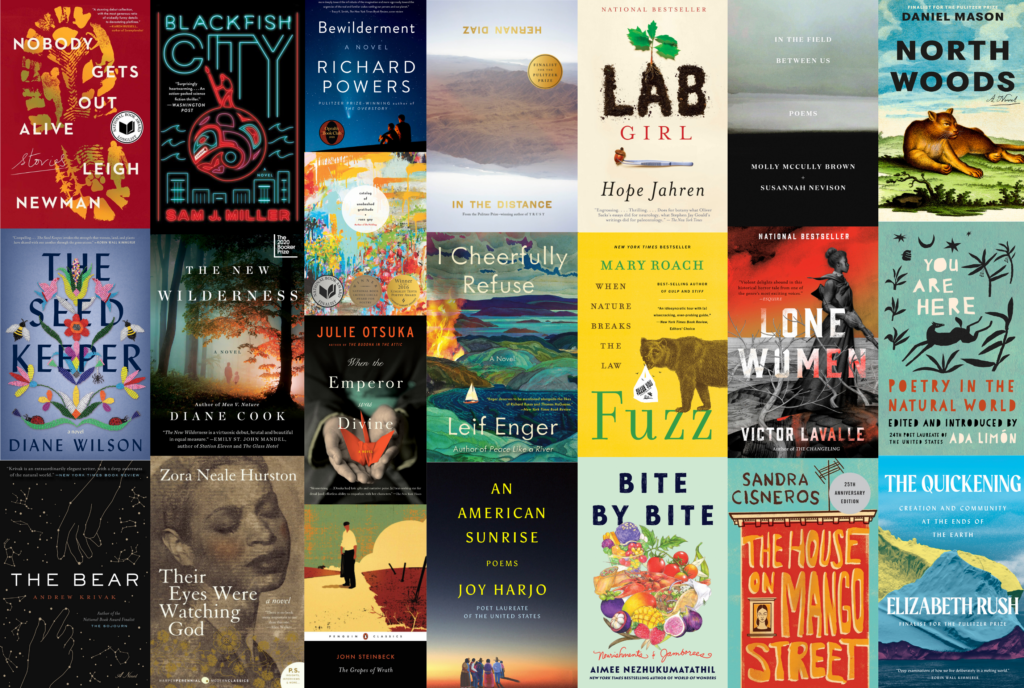
Read Helpful Articles
Arts Midwest has created a series of resources for applicants and grantees, including a guide on Best Practices for Federal Grant Applications and Tips for Combining Nature and Your NEA Big Read Programming.
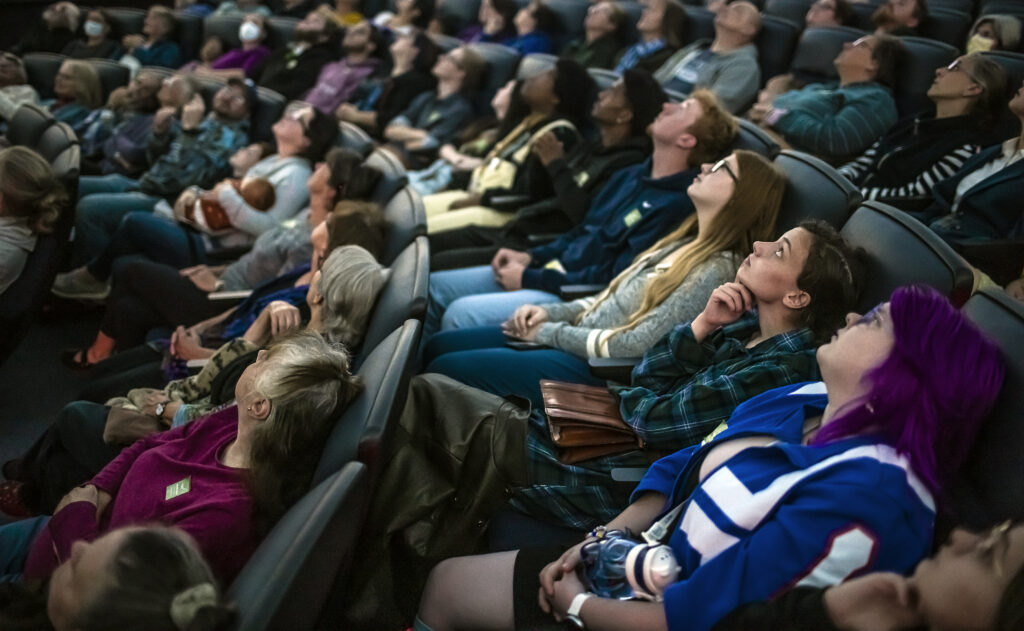
NEA Big Read News
-
April 10, 2025
Homesteading 101 from a Survival Show Star, Inspired by a Book
By Cinnamon Janzer
What happens when a survivalist, a novel, and a small-town library come together? A day of fire-starting, squash-picking, and rediscovering our place in the natural world.
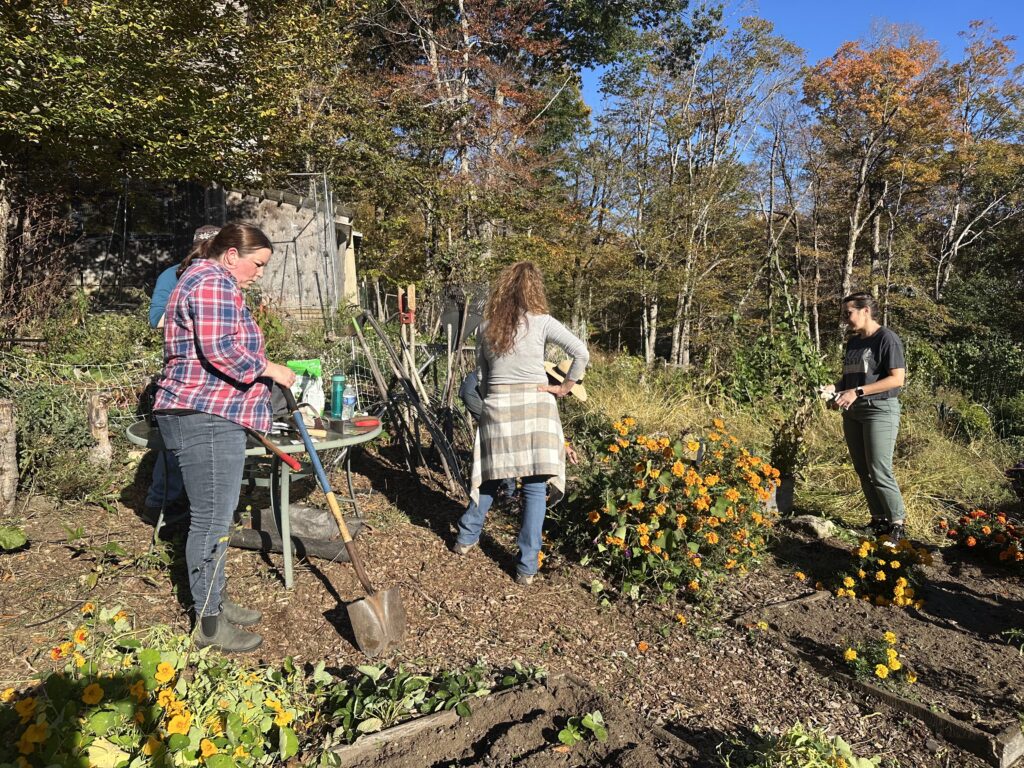
-

Now Accepting Applications: 2025-26 NEA Big Read
October 16, 2024
This community-wide reading program offers matching grants of up to $20,000 for programming that uses the theme of “Our Nature” as inspiration.
-
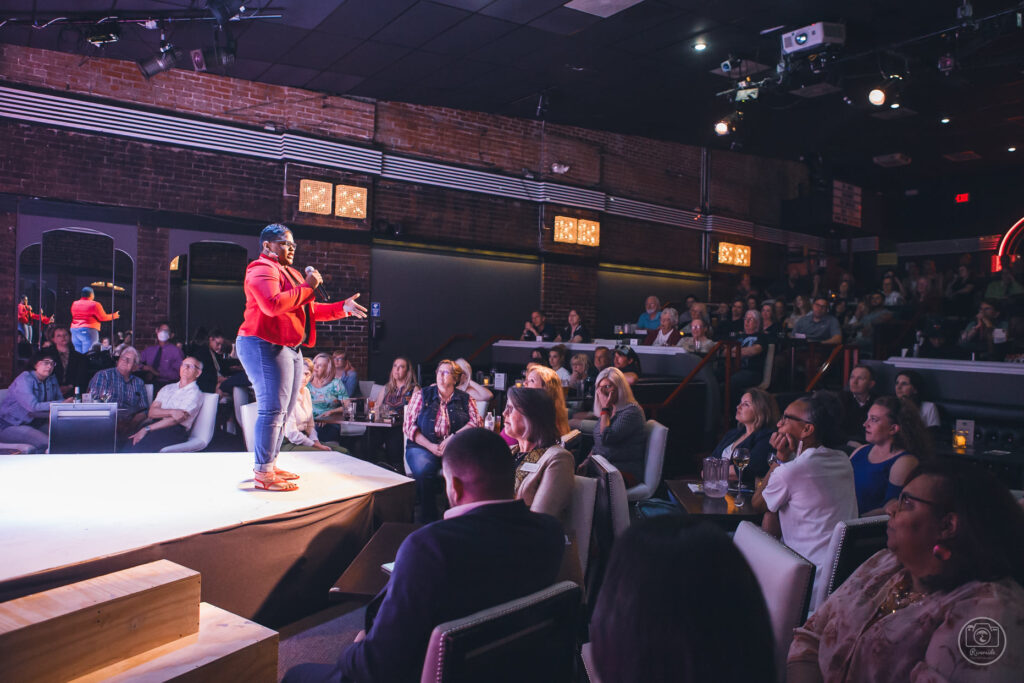
Announcing the 2024-25 NEA Big Read Grantees
June 5, 2024
$1.07 million will support 62 grantees in presenting community literary programming across the country.
-
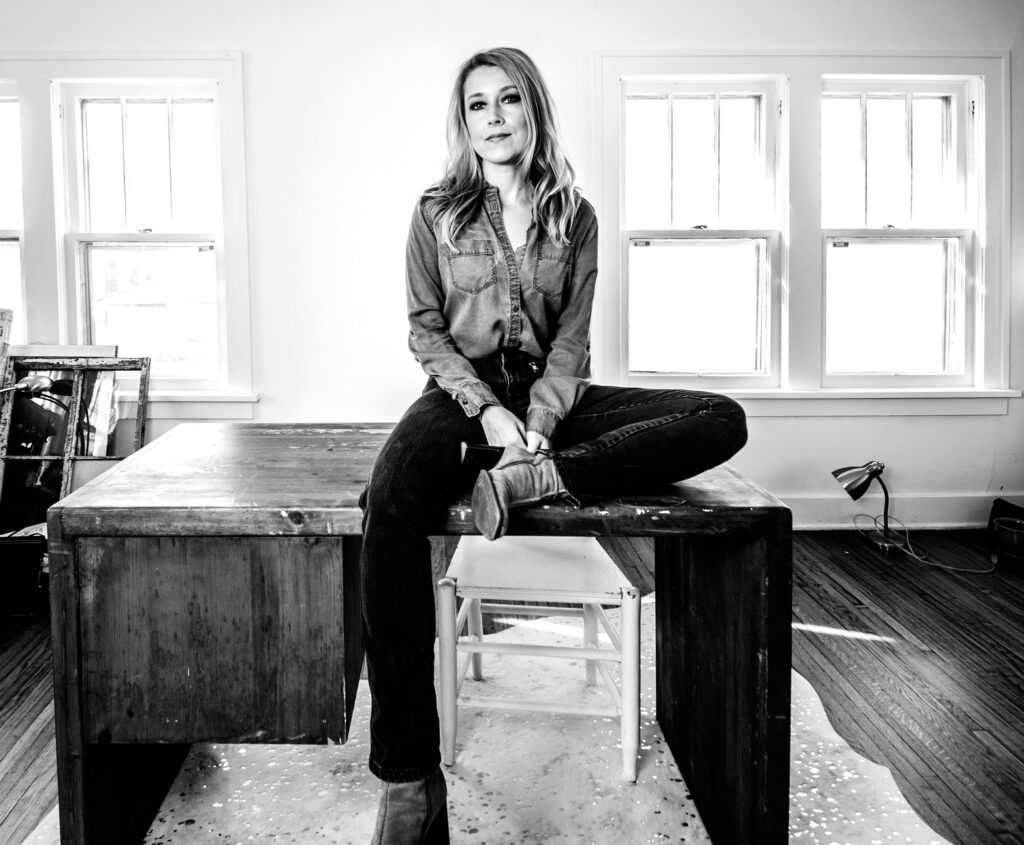
Rural Libraries Connect the Heartland, One Book Chat at a Time
May 21, 2024
Sarah Smarsh’s 2018 memoir Heartland, a book about rural issues, was discussed in rural communities across South Dakota.
Have questions about the NEA Big Read?
We’re happy to answer any questions you have about the NEA Big Read. Be sure to check out our FAQs, and if you’d like to talk to us we’re just an email or a phone call away.
Read FAQs Contact Our Team